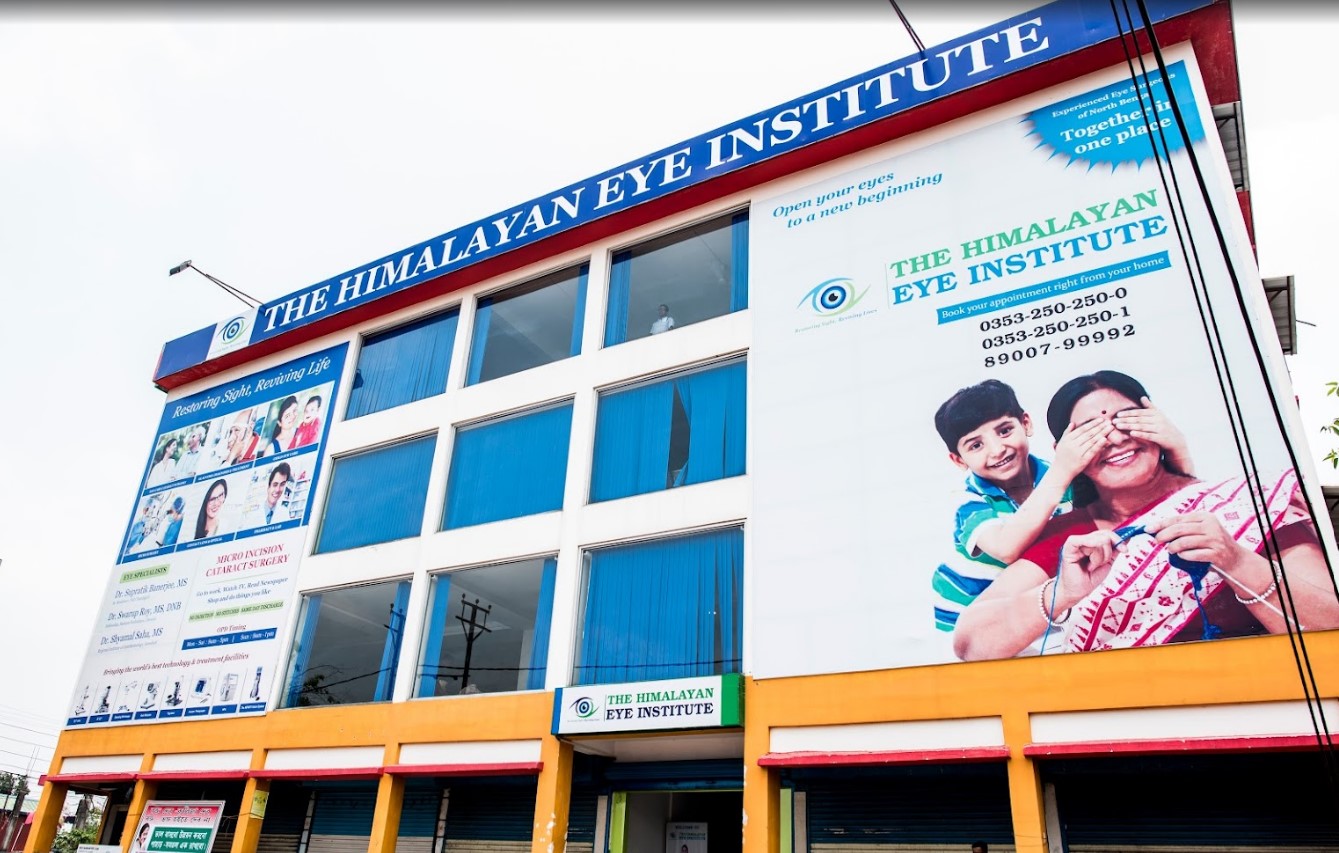Pune - 411005
The Himalayan Eye Institute - Mahananda Para, Darjiling
10
Beds
1
Services
1
Specialities
Patient Reviews for The Himalayan Eye Institute Darjiling, Mahananda Para
Be the first one to review this Hospital
The Himalayan Eye Institute Overview :
| Hospital Name | The Himalayan Eye Institute |
| Specialty Type | Ophthalmology |
| Specializations count | 1 |
| Surgeries Count | 5 |
| Address | The Himalayan Eye Institute,The Himalayan Eye Institute, Jhankar More, Burdwan Road, Darjiling, West Bengal - 734005. |
| Emergency Contact number | 03532502500 |
| Appointment & OPD timing | 9:00 AM - 5:00 PM (Monday to Saturday) |
| Total no. of beds | 10 |
Appointment & OPD Timings
Submit your details to book appointment for OPD & online consultation
Location of The Himalayan Eye Institute
Contact Numbers of
The Himalayan Eye Institute
Hospital Number :
03532502500Ambulance Number :
03532502500Emergency Number :
03532502500FAQs
On the The Himalayan Eye Institute page on our website, you will see an OPD section where the OPD consultation timings of the hospital are mentioned. This section also contains the contact details of the hospital so that you consult The Himalayan Eye Institute doctors for your medical issues. You can call the mentioned number and book a preferred appointment slot at The Himalayan Eye Institute.
The Himalayan Eye Institute, Darjiling accepts payments in cashless and online forms. You can make your payment in cash or using online modes such as debit card, credit card, UPI and internet banking.
No, it is not mandatory. You can pay the expenses out of your own pocket in The Himalayan Eye Institute.
Patients have the following rights in a hospital:
- Medical Care during Emergency
- Access Records and Reports
- Non-Discrimination
- Privacy
- Informed Consent
You should carry a Legal Photo Identification (Eg: Aadhar, Driver's License, etc), Previous Medical Reports, Insurance Card if any.
